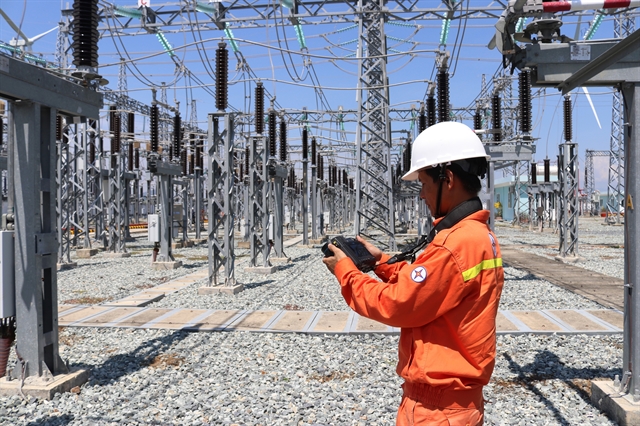FiinRatings said that the Vietnamese Government and EVN should implement reforms, undertake restructuring measures, and enhance its governance capacity.

Diversify funding sources beyond the banking system is critical for Việt Nam to fulfil the objectives under the ambitious National Power Development Plan for 2021-30, according to a recent publication of FiinRatings and its legal partner firm Indochine Counsel.
The report “The Bankability of Renewable Energy Projects Upon PDP8: from Credit Rating and Legal Perspectives” issued in late June said that corporate bonds and private credit investment from non-bank investors from domestic and international markets should be the primary funding source for this ambitious plan.
The PDP8 set the goal that renewable energy sources will dominate the power sector, comprising up to 64 per cent of power capacity, through which the Government envisioned a shift away from coal and met the net-zero emissions commitments at the UN Climate Change Conference. Accordingly, Việt Nam must invest around US$135 billion in the power sector between 2021-30, which accounts for about 22 per cent of the country’s current GDP.
Out of this total, around $119.8 billion is allocated for power generation projects, focusing on developing wind and LNG sources. An additional $14.9bn is earmarked for investments in the power transmission grid.
“These substantial investment figures demonstrate Việt Nam's commitment to enhancing its power infrastructure and expanding its capacity to meet the growing energy demand,” the report wrote.
The report, however, pointed out that financing the power projects required long-term funding which was an issue for the Vietnamese banking system.
The investment amount of $135bn for the next ten years would translate into around US$13.5 billion in new long-term funding disbursement, which was too significant to the banking system’s current long-term credit growth. “Relying solely on banking credit is insufficient,” the report wrote, adding that the credit growth caps of around 14-15 per cent imposed by regulatory authorities prevent the banking sector from extending credit at a pace that may be necessary to meet the growing demand for renewable energy projects.
“There is a concern that project developers may need help to secure long-term financing on favourable terms. We expect that this "financing gap" will depend significantly on foreign direct investment and corporate bonds, with a specific emphasis on green bonds.
“There must be other long-term funding sources, including the domestic corporate bond market, international debt markets, and the stock market.”
The PDP8 calls for financing mechanism development to mobilize funding, including green loans, climate loans, and bonds from domestic and international sources. The green finance market in Vietnam is relatively new, with considerable growth potential. Thus, much work is needed, including enhancing market awareness, facilitating the market, and establishing a robust verification system to prevent greenwashing practices, according to the report.
The report also pointed out that curtailment is one of the significant risks for renewable projects, given the fact that the sudden surge of renewable energy plants in 2019-22 has outweighed the national transmission grid’s capacity, leading to the curtailment of solar and wind power. This is due to the intermittent nature of these energy sources and the lack of storage capacity.
In addition, the plan does not provide specific guidance for the pricing mechanisms of upcoming projects. The report said that the lack of transparent pricing mechanisms could make it difficult for investors to access the financial viability of the projects.
The Vietnamese Government is considering a few options for pricing renewable energy and LNG projects. One option is to continue with the Feed-in Tariff (FIT) system, which guarantees a fixed price for renewable energy for a set period. However, the FIT system has been criticized for being expensive and discouraging innovation in the renewable energy sector. Another option is to use a competitive bidding system, where developers compete to offer the lowest price for their electricity.
“It is essential for investors, creditors, and sponsors to carefully assess the necessary steps at each stage of project development. This assessment includes identifying and obtaining all required permits and approvals, understanding the input and output documentation requirements, identifying and mitigating risks, and adhering to quality standards and regulations,” the report wrote.
Another emerging issue was Vietnam Electricity (EVN)'s creditworthiness, given not only the problem from the power purchase agreement but its financial losses in the last two years.
FiinRatings said that the Vietnamese Government and EVN should implement reforms, undertake restructuring measures, and enhance its governance capacity.
“Having a credit rating of EVN at both international and domestic rating scales is a significant factor in increasing the bankability of power projects and attracting foreign capital in this sector.” — VNS




